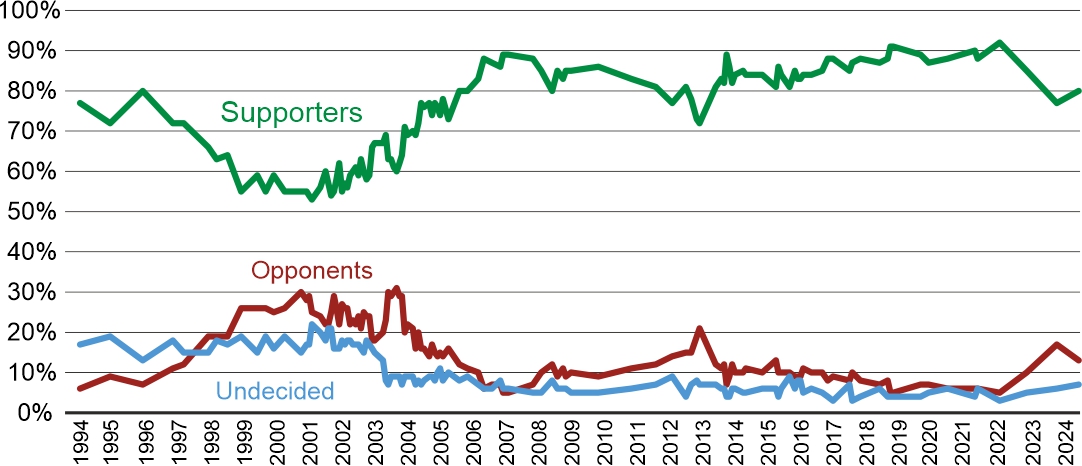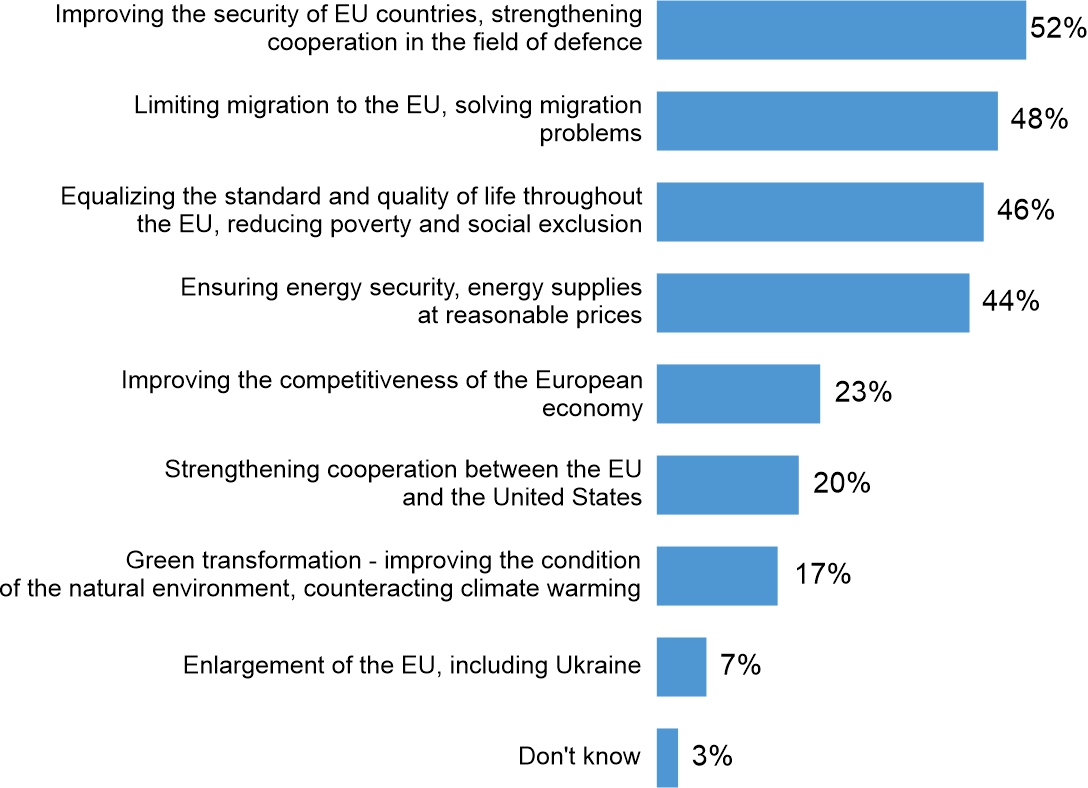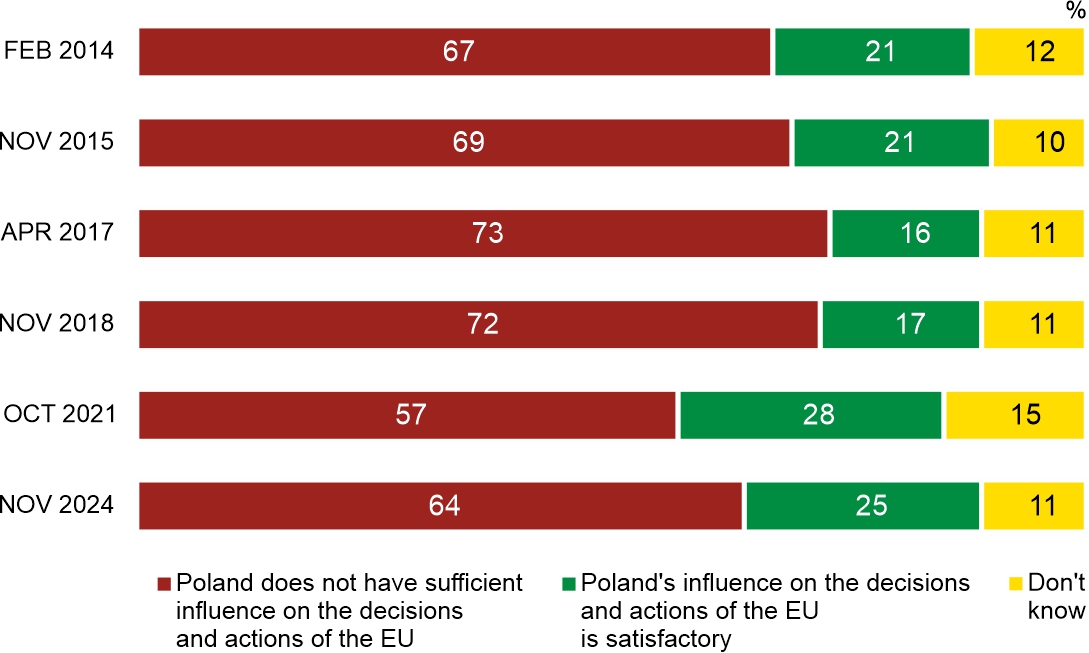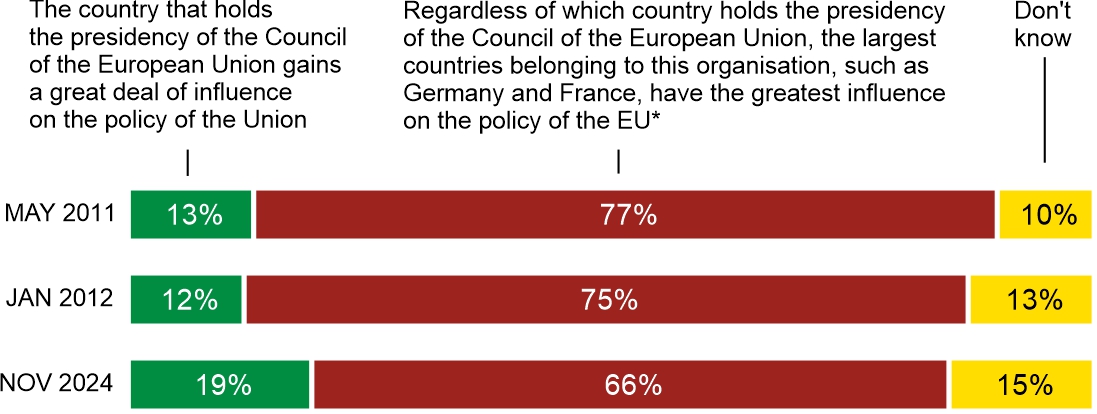Before the Polish Presidency of the EU Council
Author: Beata Roguska
|
2024-12-16
On 1 January 2025, for the second time in history, Poland will take over the Presidency of the Council of the European Union for six months. On this occasion, we asked respondents about their attitudes towards the European Union, the challenges it faces, their expectations regarding Poland's assumption of the Presidency of the Council of the EU, how they understand the Presidency and what goals Poland should set for itself in connection with its exercise.
Support for Poland's membership in the European Union is currently declared by 80% of respondents. Approval for Poland's presence in the EU has increased slightly since March this year by 3 percentage points, but has not returned to the very high level of recent years, when it reached as much as 92%. Currently, 13% of respondents are against membership, 4 points less than previously, but more than in the years 2016-2023.
Attitude towards Poland's membership in the EU

Respondents were asked to indicate two or three of the most important challenges currently facing the European Union. The most important one was the improvement of the security of EU countries and strengthening their cooperation in the field of defence. More than half indicated this (52%). Slightly fewer people considered limiting migration to the EU (48%) and equalising the standard and quality of life throughout the Union (46%) as the most important issues at present, as well as ensuring energy security, i.e. energy supplies at reasonable prices (44%). The remaining challenges were indicated much less frequently, as relatively less important or not at all important. The fewest people (7%) considered the enlargement of the European Union as the most important issue at present. Relatively few respondents (17%) mentioned in this context one of the EU priorities – combating climate change and the so-called green transformation. In view of the above-mentioned priorities, issues such as improving the competitiveness of the European economy (23%) and strengthening cooperation with the United States (20%) have also been relegated to the background.
What are the most important challenges facing the European Union today?

In the public opinion, our country still does not have enough influence on the decisions and actions of the EU. This is currently the opinion of 64% of respondents. Satisfaction with the scope of the possibilities of shaping EU policy is expressed by a quarter (25%). The assessment of Poland's possibilities of influencing EU decisions has worsened compared to October 2021, but is better than in the years 2014-2018.
Which view is closer to your own opinion?

Poles do not expect that the presidency of the EU Council will give our country a significant influence on EU policy. The majority of respondents (66%) believe that regardless of which country holds the presidency, the largest countries belonging to this organisation, such as Germany and France, have the most influence on EU policy. However, this belief is no longer as widespread as in 2011-2012, in the period immediately before and after Poland took over the presidency of the EU Council for the first time. Since 2011, the percentage of people convinced that holding the presidency increases the possibility of influencing EU policy has increased significantly. Almost one-fifth (19%) currently hold this opinion.
Which view is closer to your own opinion?

*In 2011 and 2012, in addition to Germany and France, the United Kingdom was also mentioned in this context
More information about this topic can be found in CBOS report in Polish: “Before the Polish Presidency of the EU Council", December 2024. Fieldwork dates for the sample: November 2024, N=981. The random sample is representative for adult population of Poland.




